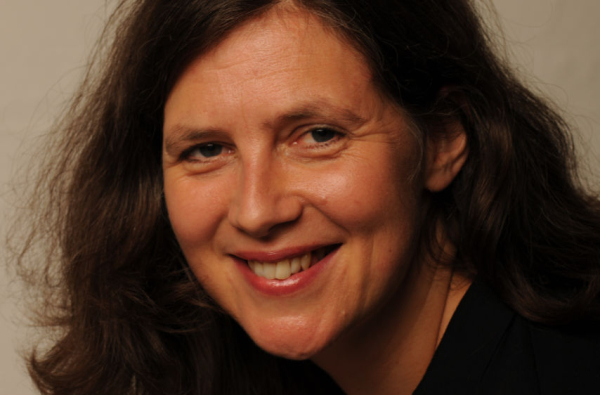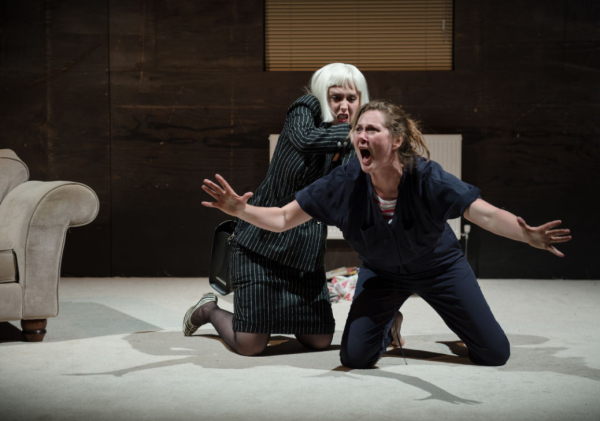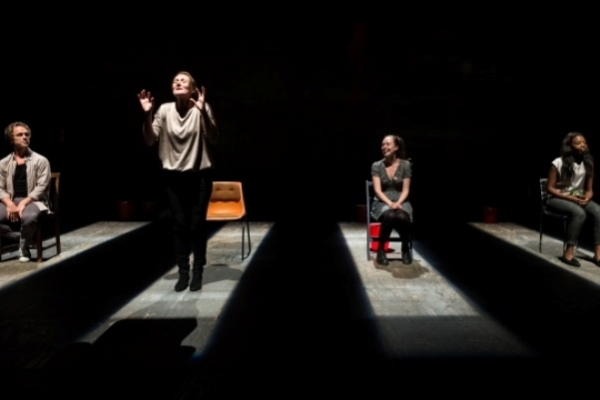RSC's Erica Whyman: 'We could be much more rebellious'

© Helene Fjell
"We've forgotten that we're allowed to make our own destiny and make our own relationships look the way we want them to look, and we don't need them to be sanctioned by the state and we don't have to have children, and we don't have to be a working mum or a mum who stays at home, and we don't have to be concerned with our appearance in the way that we all are," she says, laying out the battle lines of 21st century womanhood. "We've accepted a whole series of things, inside which we pretend we've got equality."
Midsummer Mischief is, among other things, about addressing some of these compromises. The summer festival of four short plays written and directed by women responds to the initial provocation, borrowed from Laurel Thatcher Ulrich, that "well behaved women seldom make history". It is the naughty cousin of the Roaring Girls season in the Swan Theatre, both speaking to and opposing the RSC's main programme.
"We were very conscious that the Henry IV Shakespeare programme this summer is a very masculine programme," Whyman explains. In response, she and artistic director Gregory Doran programmed the Swan with a series of Elizabethan and Jacobean plays with strong female roles directed by women, but it was clear to Whyman that this was not enough: "I knew even before we were in production with these plays that what was still missing was contemporary female voices."
The solution is a summer festival staged in a temporary theatre within a theatre. Midsummer Mischief briefly resurrects The Other Place, the alternative venue established by Buzz Goodbody in 1974 for the development of small-scale and experimental work. For the length of the festival, Whyman has created a small studio theatre within the Courtyard auditorium that was built on the original site of The Other Place, with plans to reopen this home for new work and experimentation in 2015. For now, the festival offers a glimpse of what that space might look like.
That glimpse is angry and playful in equal parts. The short plays that Whyman commissioned writers Timberlake Wertenbaker, Alice Birch, E. V. Crowe and Abi Zakarian to write in just three months were prompted by a provocation day of talks about gender politics, which Whyman explains was intended to "give them a sense of permission and give them lots of fuel". The response was startling in its force.
"What surprised me was the heat of their response," Whyman recalls. "They were furious; it's like we'd lifted some kind of lid. And of course they brought that into the room, we hadn't started it, but we'd exposed it."
That anger has produced four very different plays. In The Ant and the Cicada, Wertenbaker wrestles with huge ideas about art, democracy, capitalism and Europe, while at the other end of the scale Crowe examines one grieving family in I Can Hear You. Zakarian's This is Not an Exit takes on the media myth of having it all and Revolt. She said. Revolt again. by Birch is a play about radicalism that deliberately refuses to behave. Running throughout the quartet of plays, however, are concerns about motherhood, what it means to be a woman in the 21st century, and a certain playfulness of approach.

© Topher McGrillis
As appealing as the festival's mischievousness may be, though, I wonder if its focus on "badly behaved women" might be a little problematic. By labelling behaviour "bad", the work immediately invokes a feminine "norm" against which to measure it. Whyman concedes that this is an issue, but explains her desire to inject some lightness and fun into the programme.
"I felt that we would do the writers a greater service by framing it in such a way that didn't limit it to questions of gender and didn't limit it to questions of tragic misery, allowing the possibility of joy and humour and naughtiness and playfulness," she says. "But it's true that there is a downside, which is that we're in the badly behaved corner which we're allowed to badly behave in."
“It’s youthful, it’s playful… it’s relevant to a wide range of people’s lives”
“It’s youthful, it’s playful… it’s relevant to a wide range of people’s lives”
Is there not also a danger, by programming this work in a small space that sits at one remove from the RSC's main stages, that it remains relegated to the fringes? "There is a danger, absolutely," Whyman admits. But she counters this with a commitment to gender equality that extends beyond The Other Place and throughout the organisation. "One of the first things I said to Greg when we were talking about Roaring Girls was that I was very keen that the story was not that the RSC did women in 2014, but rather that in 2014 the RSC thought deeply about women," says Whyman. "That's a promise we've got to make good on in terms of continuing to have a balance of female directors, female voices in the programming and female writers on those stages."
She hopes that the first fruits of this commitment will be visible on the Swan stage in the next few years, where several female playwrights are currently under commission. Beyond the issue of gender equality, however, Whyman is firm in her belief in an alternative space that continues the legacy of Goodbody. "There's a need, I think, to have a place that precisely is peripheral and across the road in which it's possible to do things which are less popular, in every sense," she argues. "Less popular ideas, difficult ideas, uncompromising ideas, or new forms that people don't trust yet. We need to do that if we're going to have any kind of critical or theatrical edge."
Creating that edge is a key part of Whyman's role as deputy artistic director, a role that she stresses sits right alongside Doran's. "It's not that he's doing Shakespeare for the main stage and I'm in the corner doing little work," she says. "There's a proper dialogue between us, and I think that's an exciting development. It's a challenge to make sure new work stays central, but it's a challenge I've been given explicitly and it's a great opportunity."
Whyman insists that since the Midsummer Mischief festival has been running, the RSC's view of itself has subtly shifted, as has its audiences. This is what she hopes to carry forward in the future, along with a renewed zest for politics. "Here, it's very easy to lose sight of the power of theatre to be political, because we're in the Home Counties, there's a lot of privilege, there's a sense in which we come back and back to Shakespeare's plays just because they're good stories," Whyman says.
"I think they are more than good stories," she continues, "I think they are radical investigations of the issues of his time and he managed to do that in such a way that we are still asking questions about our own lives when we see them. If the RSC forgets to be political, I think we lose a really important link between Shakespeare's actual spirit and energy and our own time."
And it is this spirit of radical questioning that drives Midsummer Mischief. "It's youthful, it's playful, it's short, it's affordable, it's relevant to a wide range of people's lives," Whyman says. "I hope that we keep that."











